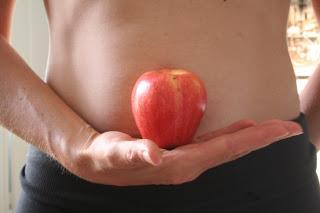I am not a professional in this matter, but do want to share what I have learned. Without going into a lot of detail, a healthy gut system should send normal signals to our brain. If your gut system is trying to fight off toxins, metals, vaccines, yeast, medications, preservatives, gluten and other hard to digest foods, it will begin to cause holes the intestinal wall. You may also have heard of this condition as leaky gut syndrome; for more on this you could read this article.
 What Happens When You Have Holes in Your Digestive System?
What Happens When You Have Holes in Your Digestive System?Each hole that is created, allows these toxins to directly enter the bloodstream as well as climb up the vagus nerve. With all these foreign materials in your bloodstream, your body is having to fight extra hard to protect itself from illness and your brain is being sent false information.
How Do You Know if You Have a Leaky Gut?
Many of us have holes in our digestive tract and may not even notice. For others, it could be manifested into some of these conditions:
- allergies
- ADHD
- anxiety
- arthritis
- autism
- celiac
- colitis
- Crohns
- dyslexia
- eczema
- headaches
- irritable bowel
- migraines
- yeast overgrowth
- and much more
How to Fix our Digestive Systems?
The holes in our digestive tract can be repaired with proper nutrition, remedies, therapies and supplements. I highly recommend seeing a naturopath, holistic nutritionist, DAN doctor, or other professionals with an invested interest in whole natural foods.
What I have learned is that there are a lot of things we can do to protect and heal our gut systems.
- Ensure your diet is not high in sugar, processed foods, refined flours,starches, preservatives and flavourings.
- Your diet should include zinc which is essential in building up your intestinal wall and also helps enhance your appetite for a variety of foods and flavours.
- Include probiotics or digestive enzymes in your diet to reduce the stress on your system as well as balance out the healthy bacteria in your body. Probiotics bring in the good bacteria which help your body heal and fight off infections.
- Eat foods which are naturally fermented giving your body the probiotics, minerals and enzymes it needs to stay healthy. Some examples would be raw pickles, raw milk yoghurt or non-dairy yoghurt, raw sauerkraut and, kombucha.
- Consider a GAPS, Primal or Paleo diet. These diets basically bring us back to eating like our ancestors. Our ancestors ate diets full of fruits, vegetables, nuts, healthy fats, meats and fermented foods. They ate little to no grain and often fermented them first. The GAPS diet even includes stages to follow which work on healing your digestive tract. Check these out for more on GAPS Intro, Intro to Paleo or Nourishing Traditions

